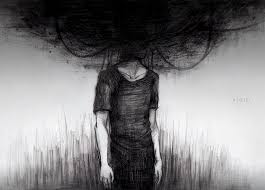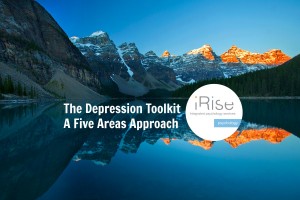We often use the expression ‘I feel depressed’ when we’re feeling sad or miserable about life. Usually, these feelings pass in due course. But, if the feelings are interfering with your life and don’t go away after a couple of weeks, or if they come back, over and over again, for a few days at a time, it could be a diagnosis of depression and you may benefit from depression therapy.
In its mildest form, depression can mean just being in low spirits. It doesn’t stop you leading your normal life, but makes everything harder to do and seem less worthwhile. At its most severe, major depression (clinical depression) can be life-threatening, because it can make you feel suicidal or simply give up the will to live.
There are also some specific forms of depression:
- Seasonal affective disorder (SAD) – this is seasonal depression which is related to day length. It usually comes on in the autumn and winter, when days are short and the sun is low in the sky, and gets better as the days get longer and brighter.
- Postnatal depression – many mothers have ‘the baby blues’ soon after the birth of their baby, but it usually passes after a day or two. Postnatal depression is a much more serious problem and can occur any time between two weeks and two years after the birth. This requires a specific form of depression therapy.
- Bipolar disorder (manic depression) – some people have major mood swings, when periods of depression alternate with periods of mania. When manic, they are in a state of high excitement, and may plan and may try to carry out over-ambitious schemes and ideas. They often then have periods of severe depression. Depression therapy for bipolar disorder often works in conjunction with medication.
What are the symptoms of depression?
The following are all symptoms of depression, and if you tick off five or more of any of them you are probably depressed.
My feelings
- I am low-spirited for much of the time, every day
- I feel restless and agitated
- I feel numb, empty and full of despair
- I feel isolated and unable to relate to other people
- I am unusually irritable or impatient
- I find no pleasure in life or things I usually enjoy
- I have lost interest in sex
- I am experiencing a sense of unreality
My behaviour
- I’m not doing activities I usually enjoy
- I am avoiding social events I usually enjoy
- I have cut myself off from others and can’t ask for help
- I find it difficult to speak
My thoughts
- I am having difficulty remembering things
- I find it hard to concentrate or make decisions
- I blame myself a lot and feel guilty about things
- I have no self-confidence or self-esteem
- I am having a lot of negative thoughts
- I have been thinking about suicide
My physical symptoms
- I have difficulty sleeping
- I am sleeping much more than usual
- I feel tired and have no energy
- I have lost my appetite, and am losing weight
- I am eating a lot more than usual and putting on weight
- I have physical aches and pains with no obvious physical cause
- I am using more tobacco, alcohol or other drugs than usual
Depression presents itself in many different ways. You may not realise what’s going on, because sometimes your problems seem to be physical, rather than mental or emotional. There are also some other mental health problems often linked to depression.
Anxiety
People who are depressed often have anxiety as well – the two problems often occur together, and each can make the other worse. If you are feeling anxious, your mind may be full of busy, repetitive thoughts, which make it hard to concentrate, relax, or sleep. You may have physical symptoms, such as headaches, aching muscles, sweating and dizziness.
What causes depression?
Depression varies very much from person to person and can happen for one or more reasons. Occasionally it may appear for no obvious reason. Some causes of depression include:
- Side effects of medication
- Chemical changes in the brain.
What’s the Solution?
We take an holistic approach to depression therapy so that each client receives what works best for them. This is called integrative counselling. When clients come to us with an idea of what they need, we always recommend that we discuss the options first so we can reach a joint decision about what would be most effective.
With depression therapy and counselling, it is important that the client realises there is a problem and that our mental health and wellbeing can be affected by experiences and events that have happened at any age during our lives.
Some issues are more deep-rooted than others. And some are more complex than they seem at first. We are flexible and will recommend changes to any agreed plan if we think that would be better for you.



